WHY BUILDING CONTRACTS ARE SO IMPORTANT
As one of the leading construction companies and builders in Cheshire, we know that a formal written building contract is the cornerstone of a successful build. Remember that when you instruct a builder to commence work on your self build or extension, you’ve entered into a contract, even if you’ve only communicated verbally.
However, without a written contract in place, it’s not uncommon for disputes to arise, whether that’s to do with payment terms, the quality and speed of the build or the cost of the work.
People also get caught up thinking about the final bill, completion date or the quality of the work and forget other key details: health and safety, insurance and warranties as just a handful of examples. A good building contract lets both you and your builder know where you stand throughout the project.
WHAT IS A STANDARD BUILDING CONTRACT?
A standard building contract is a contract produced by the building industry that can be used as a template to engage a single contractor. There are many forms of standard building contracts available. Examples are published by JCT, RIBA and FMB, to name a few.
DO I NEED A BUILDING CONTRACT?
While there isn’t a legal requirement to have a written building contract in place, it’s an essential part of any complex construction project. Forging ahead without a formal written contract (remember a contract doesn’t have to be written to be binding) could land your build in hot water. They provide a coherent document for both parties to refer back to in regards to the project’s specifics, and make sure that key elements don’t fall between the cracks of clear communication.
Who has insurance in case of a site fire? When is payment expected? What happens if the project overruns? A building contract provides clear responsibility should any disputes between client and contractor occur.
The legal landscape has changed quite a bit in recent years, especially in consumer protection. There is now strict legislation requiring builders to set out information with their prices on all manner of thing.
The upshot, however, is that there is more reason now for builders to have a written contract, some requiring a formal ‘cancellation period’ to be given, in the absence of which there can be dire consequences.
WHAT SHOULD A BUILDING CONTRACT INCLUDE?
A building contract should include information about the scope of the work, a defined start and finish date and a price for the work scheduled, however, this should be as detailed as possible to cover a number of scenarios.
Building projects are complex and have a habit of throwing up all sorts of issues to grapple with. The more detail we have on potential issues then the clearer the parties are with where they stand.
PRICE
A decent contract will record the price you are paying for the work. It is usually a fixed price for a defined amount of work, but not always. What’s more, some contracts operate on a ‘cost plus’ arrangement under which the builder is reimbursed their costs, plus their charge for managing the work. It depends on what you agree, but the contract will record it.
PAYMENT SCHEDULE
The contract will also set out the rules on when the bill is paid. This may be in period or stage payments, typically monthly in arrears. So the builder may do a month’s work, put in a bill and the contract provides for payment in 14 days. This might not always suit the type of project you are undertaking.
It might not reflect what the builder wants, but the contract can be amended to record what the parties agree.
SCHEDULE OF WORKS
It is essential to identify a detailed scope of work, often referred to as a ‘specification’ before the work starts and not as you go. Starting work without this in place is high risk and quite frankly asking for an argument.
The contract needs to be clear on what the builder has included in the price and this can often flush out how good the design and specification are. A good set of plans and a robust specification describing the work is essential and will be referred to as ‘contract documents’ in the contract itself.
We know that not all items are designed at the outset, in which case the price is likely to include ‘provisional’ or ‘prime cost’ sums. The kitchen or bathroom might be selected at a later stage, for instance, in which case a fixed allowance will be set out in the price. The final cost will then be accounted for once the kitchen or bathroom has been chosen. The contract is in place to explain this.
VALUATION OF EXTRA WORKS
A good contract will also set the rules on the valuation of extra work. Most standard forms of contract require extra work to be valued on a fair and reasonable basis and it is possible to be more sophisticated about how that is arrived at by reference to the existing price breakdown.


